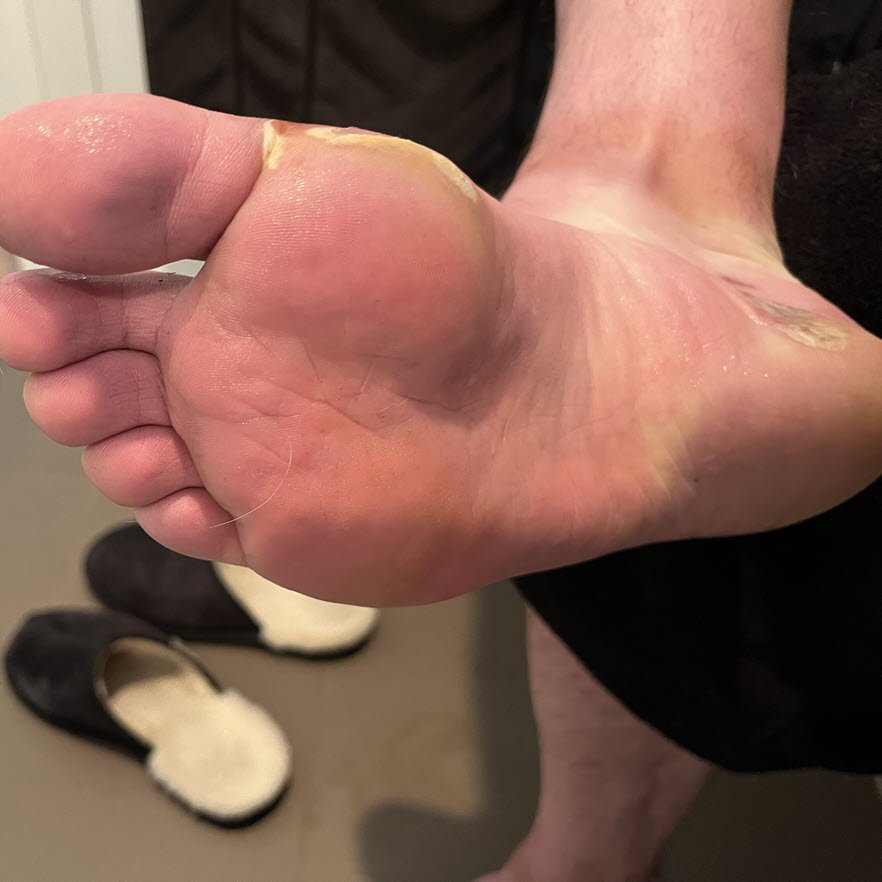Understanding the Source of Excessive Sweating and Its Effect On Every Day Life
Excessive sweating, also called hyperhidrosis, is a problem that affects a substantial portion of the populace, yet its hidden reasons and effects on day-to-day working stay somewhat enigmatic. While it is generally comprehended as a physical action to control body temperature level, the triggers for extreme sweating can vary widely amongst individuals, including not only physical aspects yet likewise emotional and emotional aspects. The impact of this condition prolongs past plain pain, usually influencing social interactions and overall top quality of life. By delving into the origin triggers of hyperhidrosis and exploring its complex effects, a deeper understanding of this prevalent problem can be acquired, shedding light on the intricacies that individuals grappling with extreme sweating browse on a daily basis.
Physiology of Sweat Glands
The policy of sweat production, a crucial physical process, is largely managed by the task of gland distributed across the human body. Gland are classified into two main types: eccrine and apocrine glands. Eccrine glands are the most many and are discovered in nearly all areas of the body. They play an essential function in thermoregulation by secreting a watery liquid onto the skin's surface, which assists and vaporizes cool the body down. On the other hand, apocrine glands are focused in areas rich in hair roots, such as the armpits and groin, and their secretions are thicker and milklike in appearance.
When the body temperature level climbs, either because of exercise, high temperature levels, or emotional stress, the worried system activates the gland to create sweat. This sweat is made up mainly of water and electrolytes like salt and chloride. The process of sweat production is crucial for maintaining the body's interior temperature level within a slim, optimal range, highlighting the vital role sweat glands play in human physiology.
Triggers for Excessive Sweating
In understanding the root causes of too much sweating, it is critical to recognize the triggers that can lead to this physical action. Physical effort, high temperatures, and spicy foods are also understood to activate excessive sweating in individuals prone to this problem.
Moreover, medications such as some antidepressants, opioids, and certain supplements can likewise function as triggers for hyperhidrosis. Understanding these triggers is necessary in handling extreme sweating efficiently - How to stop sweaty hands. By recognizing and attending to the specific triggers that prompt excessive sweating in an individual, healthcare service providers can establish personalized treatment strategies to minimize this problem and improve the person's lifestyle
Medical Conditions Associated
Connected with too much sweating are various clinical conditions that can aggravate this physical feedback. One usual problem is hyperhidrosis, a disorder characterized by unusually raised sweating that exceeds the body's thermoregulatory demands. This can manifest in focal areas like the palms, soles, underarms, or face, affecting an individual's top quality of life as a result of social shame and discomfort.
In addition, endocrine disorders such as hyperthyroidism, diabetes mellitus, and menopausal warm flashes can likewise lead to extreme sweating. Hyperthyroidism causes an overflow of thyroid hormones, speeding up metabolic rate and setting off sweating. Diabetic issues can generate sweating episodes, specifically throughout hypoglycemic episodes when blood glucose levels drop also low. Menopausal warm flashes, attributed to hormonal variations throughout menopause, can cause unexpected and extreme sweating, commonly gone along with by flushing and heart palpitations.
In addition, infections like hiv, endocarditis, and tuberculosis have actually been related to night sweats, a common symptom understood to interrupt sleep and impact total wellness. These medical conditions highlight the diverse variety of underlying elements Read More Here that can add to too much sweating, necessitating comprehensive evaluation and monitoring by health care experts.
Psychological and Emotional Variables

Influence On Social Communications
Too much sweating can have profound impacts on a person's capacity to involve easily in social communications. The visible indications of sweat spots or damp spots on clothes can cause embarrassment and self-consciousness, creating people to withdraw from social situations. This withdrawal can influence relationships, restriction social activities, and hinder expert and individual growth.

Additionally, the anxiety and Sweaty hands treatment self-confidence concerns coming from excessive sweating can affect communication and interpersonal skills. Individuals might struggle to concentrate on discussions, get involved in group tasks, or reveal themselves confidently. This can result in sensations of isolation and solitude, as social links end up being testing to preserve.
Conclusion

While it is generally recognized as a physical reaction to manage body temperature level, the triggers for excessive sweating can differ extensively amongst people, incorporating not only physical factors but also psychological and emotional components. By delving right into the root triggers of hyperhidrosis and discovering its complex effects, a much deeper understanding of this prevalent issue can be gotten, shedding light on the intricacies that individuals grappling with too much sweating navigate on a day-to-day basis.
Physical physical effort, high temperatures, and spicy foods are additionally known to set off excessive sweating in individuals susceptible to this problem. By recognizing and attending to the specific triggers that prompt extreme sweating in a private, medical care providers can establish individualized therapy strategies to ease this problem and improve the person's top quality of life.
Too much sweating can have profound results on a person's capability to engage conveniently in social communications.